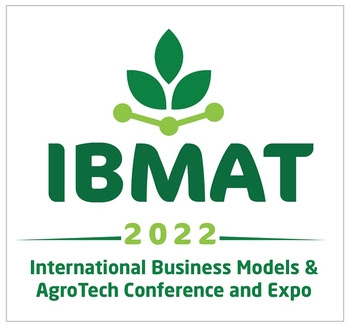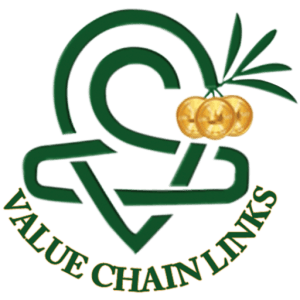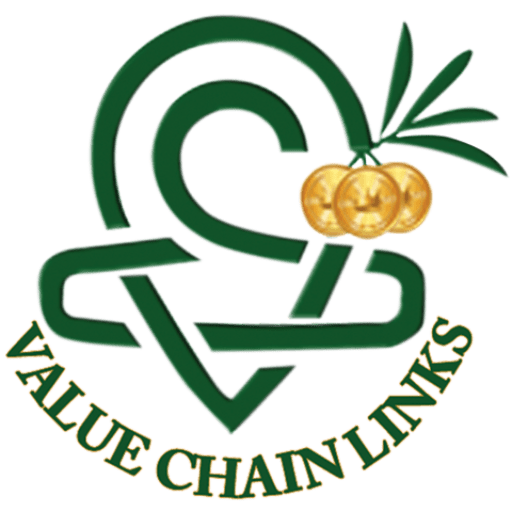CAN THE SEVEN (ISRAELI) STEPS TO EXPERTISE BRING PROSPERITY TO THE FARMERS OF EMERGING ECONOMIES?

BY DR. NIMROD
In December 1988, I was 23 years old, and for the first time, I was given the responsibility for the Plant Protection operation in our Kibbutz orchards.
Yes, I grew up in those orchards, but my attention in my youth was dedicated to machines that have a motor, meaning tractors and other AgroTech gadgets.
As you are undoubtedly aware, microorganisms, insects, and mites have no engine, at least not the kind I was interested in during my first 23 years of life.
IGNORANCE
I had no clue what most of the pests looked like, their names, biology, ecology, phenology, etc. In short, I was utterly ignorant of the Crop Protection domain.
Yet, I was in charge of the crop protection of total production of 1,200 tons of six high-value crops (apple, peach, nectarine, pear, walnut, and cherry), worth millions of dollars and a significant source of income to the Kibbutz community – the livelihood of many families dependent on my success.
But how could I succeed if I know nothing!?
It was December, cold and rainy, and the trees were still in dormancy. Yet, I knew I had less than three short months before blooming and the beginning of an intensive crop protection season on its daily sprays.
You can imagine, I was under great stress. I asked myself critical, professional, and managerial questions, such as–
“What do I do?
How do I bridge the gap of knowledge, technologies, practices, and more?
How do I reach the level of results of my predecessors (I couldn’t imagine being better)?
What and how do I prioritize my activities?”
A METHOD TO BE #1
The change and assurance that the future will be safe and bright came when I relaxed and realized that I am surrounded by many good people, each with a lot of knowledge.
Most importantly, they wanted and were ready to assist me as much as possible.
All I had to do was ask, invite, and allow them to help me. That insight turned out to be THE “game-changer.”
I didn’t realize it at the time, but I was creating for myself a method to help me gain knowledge and experience, in a short period, to the level of “expert,” regardless of the subject.
In practice, every week, I would do up to 4 separate and different monitoring sessions, each with a different expert.
This way, I got different views, perspectives, and advice from several experts on the same crop protection topic/problem.
There were a few cases when I faced particularly enormous challenges, such as the mass death of young trees, 10 to 12 years old.
In this case, I even held a conference (eventually three) and invited experts from all over the country, including the extension services, academia, research centers, and institutes.
Those events served as an opportunity to refocus attention on a painful challenge, promote it, follow up, share data and knowledge, coordinate activities, and strengthen professional ties.
This way, I discovered that the premature death of trees in my orchards is common all over Israel. It took ten more years before we found the Root Problem, a high infestation by nematodes of seedlings in the nursery, rapidly killing the trees’ roots.
Using this method, I soon became an expert in a domain I knew little of only a few years earlier; I gave lectures and wrote articles about Integrated Pest Management (IPM), Low Volume Spray, Nematodes, and High-Density Orchards.
Bonus video: What separates the doers from the dreamers? (Steve Jobs. 1:28 minutes)
THE SEVEN STEPS TO GREATNESS
To this day, I carry with me the lesson learned from my early days in agriculture.
Later in my career, I realized that the same method applies to every activity and field where you wish to become knowledgeable or even an expert.
It took me years to understand, develop, and test the method that enables anyone to become “an overnight expert.”
I will never forget the good people from which I learned so much. It is now my turn to teach and share my experience, insights, and method with others.
I hope it will serve you as well as it did and still does to me.
- Defining a goal – Look, in your field, for a particularly challenging goal!
(Hint, if the goal seems achievable to you, it is probably not “particularly challenging.”)
- Be a “first grader” – Ask questions and act as if you know nothing.
- Pluralism – Expose yourself to as many experts as possible with different opinions. Listen to everyone with respect, learn, and practice.
- Integration and synergy – Gather, collect and combine the best from all experts. At last, you gained sufficient knowledge to enable you to turn One plus One into more than Two.
- Execution – Be diligent, not arrogant. The way to test the knowledge and theories you have acquired and developed is only through their execution and application in actual conditions.
- Self-confidence – No one becomes an expert without failing. You will fail. When it happens, be sure you fall forward (so even the fall will advance you). Failure is a step on the road to success.
- Persistence – those who keep getting up and trying again long after everybody else gave up have the chance to become experts. Don’t give up!
If you have survived so far, then congratulations, you are an expert!
Return to Step 1, start everything all over again.
Thanks to this method, I was able not only to bring solutions and success to my orchards and other Israeli farmers (IPM, Low Volume Spray, Nematodes) but to become a global expert in several domains –
Academy – Fruit flies’ ecology and meta-population ecology;
Technology – Develop the most potent technology for fruit fly control and flying pests (GCFR), and then a line of ground-breaking solutions (Freedome) that replace the need for fruit fly sprays;
Business models – The development of the novel Dream Valley business model, a dedicated trading platform for smallholders to trade with perishable fresh produce.
FROM INDIVIDUAL TO NATIONAL SOLUTION
These principles have proven themselves time and time on a personal level in every field I have dealt with.
But then I asked myself, “Can the same principles be applied to a large-scale organization, or even say, to the state level!?”
After studying that question, in particular, based on Israel’s agro-industry history, which I am familiar with, I concluded that the answer is clearly –YES! It can be applied and succeed.
Yes, a country or any organization that applies the above method in its seven steps can become a leader in any field it chooses.
If we take Israeli agriculture, for example –
At the beginning of the 20th Century, Israeli agriculture was backward, poor, and dependent on alms and grants from wealthy Western donors.
Fifty years later, Israeli agriculture was very advanced and export-oriented.
What happened that made this revolution possible?
I was lucky to have personal equitant with the generations (my grandparents and parents) responsible for the above “revolution,” which impacted the following generations.
During the first half of the 20th Century, those active generations practiced daily the seven-steps method – Challenging goal, Lifelong learning process, Pluralism, Integration, Execution, Self-confidence, and Perseverance.
I never met more modest and humble people than those of the two generations responsible for “The Israeli Agriculture Miracle.” It was never a miracle; it was a method they intuitively practiced and, through cultural practices, transferred to future generations.
Now it is my turn to share and pass it to you.
ANYONE CAN
Note that anyone can perform the steps described above. There is no need for expensive technology and no prior knowledge.
No need for money or expensive tools to practice that method. All you need is to decide to follow that method and make it part of your way of life.
When my parents met, the most precious property they owned was a winter blanket and a burning desire to make a dream come true.
SHARING WITH A SMILE
But there is one thing that is critical to emphasize, and that is – PLURALISM, in its broadest sense.
To become an expert or a world leader (individual or country), you have to be open and “expose yourself to as many as possible experts with different opinions. Listen to everyone with respect, learn, and practice.”
This is not possible if you exclude people who are not of your sex, color, race, nationality, language, continent, religion, political belief, social status, age, etc.
An extreme example of that attitude is the members of Kibbutz Tzuba, where I was born.
All members were Holocaust survivors.
All were orphans after the Nazis (often with the passive or active support of the local European population) killed and murdered their families in the many death camps across Europe.
They all had a reason to be angry at the world, the Europeans, the Americans, and others who stood by and did not save their families. However, they chose a positive approach to life and their future.
They practiced their lives with openness and acceptance to ALL, including people from Germany and other European countries. The openness was complete, and with a smile.
That doesn’t mean that they or we forgot what happened and who was responsible. But, it meant that they allowed themselves to open and learn from all, including nations that once hunted them to extinct.
The force of letting others into your life is powerful; it enables you to change others while you change.
When you change and your counterpart change, the world is changing. Change starts from the inside and may vibrate to circles beyond you, including that of a region, state, and the world.
Are you not sure about the necessity of “Pluralism”?
Think of two countries; each represents the opposite extreme of “openness” – North Korea, very close, versus Singapore, which is very open and encourages openness.
Do you see the link between the levels of Pluralism and economic success?
Which of the models do you prefer?
To summarize, closure ensures that you will not be a world leader. In contrast, pluralism, openness, and diversity pave your road to excellence and global leadership.
Bonus video (the first 1 minute): The Almost Perfect Country.
| A CONFERENCE WITH RESPECTThe International Business Models & AgroTech Conference and Expo (IBMAT) follows the seven steps method, starting with “Defining a particularly challenging goal.” |

1) Challenging goal– The IBMAT goals are:
* Exploit a trillion $ market by tailoring and implementing business and operational models with technologies for smallholder farmers.
* Alleviate smallholder farmers into the middle class by 2031 through developing export-oriented agro-industry businesses.
2) Lifelong learning process –The IBMAT Conference and Expo is an event designed first and foremost to learn. We know one thing; we are ignorant. Hence, there is much poverty and hunger in the world. We want to learn from and with the experts.
3) Pluralism – IBMAT Conference and Expo is INTERNATIONAL because it cares about everybody.
The conference team is doing its best to include everybody from everywhere. There are even sessions dedicated to women (gender) and youth (future), and its team invests endless effort in having representatives from all continents and as many countries as possible.
4) Integration and synergy, Execution, Self-confidence, Persistence. IBMAT conference and Expo provide you with the tools to go through steps 4 to 7.
Furthermore, IBMAT recognizes the importance of “failure” and that there is no progress without failing. Hence, it encourages experts to present failures, and even big ones, with their insights. We respect transparency and courage!
To the International Business Models & AgroTech Conference and Expo website.
Register now and secure your place at the conference. The number of participants is limited to 400 – priority-based on the registration date.
Contact me if you wish to present.
| TAKEAWAYS» MOST SMALLHOLDERS have been living in poverty and hunger for decades.» WE NEED new business models soon to transfer poverty to prosperity rapidly.» THE RAPID development of the needed business models is possible with the “seven-step method.”» THE SEVEN-STEP METHOD – Challenging goal, Lifelong learning process, Pluralism, Integration, Execution, Self-confidence, and Perseverance. |

